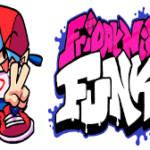Many types of therapy can help people with depression. For example, cognitive-behavioral therapy (CBT) can teach you healthy coping behaviors. Supportive therapy helps you develop a positive self-image and improve social functioning. Cognitive-behavioral therapy helps you identify harmful thought patterns and replace them with more healthy ones. It also enables you to set realistic goals. You can visit depression therapy in NYC – Privatetherapy.com, if you’re interested in learning more about the different types of therapy for depression.
Cognitive behavioral therapy
Cognitive behavioral therapy, or CBT, is a treatment for depression that aims to change thought patterns and behaviors in the present. This type of therapy is goal-oriented, defining specific goals for each session. It also aims to teach patients how to change their thoughts and behavior to alleviate symptoms of depression. The therapy includes role-playing and homework assignments. Patients are also encouraged to make small changes in their daily lives that can make a big difference in their life.
Cognitive behavioral therapy, or CBT, is a proven method for treating depression. This therapy involves collaborating with a therapist to identify and challenge patterns of thinking, feelings, and behaviors that can be improved. Using different strategies, such as thinking positively and focusing on the present, CBT teaches patients to reprogram negative thoughts and re-calibrate positive ones. Repeated sessions and outside work reinforce the process.
Behavioral activation
Behavioral activation therapy is useful for people with subclinical depression or anxiety. Activation therapy encourages small steps to create momentum. It can help people relive the feelings associated with subclinical depression. By increasing their activities, people can overcome depression and anxiety. Behavioral activation encourages a healthy balance between activities and rewards. For example, people can learn to enjoy cooking and socializing, as well as learn how to make new friends.
The main goal of behavioral activation is to increase pleasurable feelings and improve a sense of meaning. For example, a person who loves to garden may experience difficulty getting motivated to do so during a depressive episode. However, stopping gardening completely would only reinforce the hopelessness and rob them of an activity that makes them feel good. Even a small amount of gardening can boost someone’s mood, keep them physically active, and remind them of what they value. Behavioral activation therapy is a highly effective way to replace unhelpful behaviors with beneficial ones.
Psychodynamic therapy
Those who suffer from depression may find psychodynamic therapy to be especially beneficial. This therapy is designed to help clients understand their emotional histories and how these experiences influenced them. In addition to helping clients understand how their current depressive symptoms affect their past, psychodynamic therapy also helps them develop the necessary tools to handle difficult issues independently. Weighing the benefits of psychodynamic therapy for depression versus other treatments for depression, this type of therapy may be the best fit for your case.
The duration of psychodynamic therapy may vary, but most sessions last about 50 minutes. This type of therapy is much less intense than traditional psychoanalysis. You can expect sessions to last anywhere from twelve to twenty-four weeks. The sessions will typically focus on the past rather than the present. Unlike CBT and IPT, psychodynamic therapy uses the free association to help you identify important issues and goals. In addition, it may be shorter than some other forms of therapy.
Group therapy
One reason group therapy is beneficial for treating depression is that it allows clients to interact with others in a supportive environment. Group therapy can be especially beneficial for people who have issues dealing with social anxiety or phobias. Some types of group therapy involve role-playing, while others focus on deep personal discussion. However, group therapy can be very effective for anyone suffering from depression. Therefore, it may be your best choice to get the most out of your treatment.
Another reason group therapy helps treat depression is that it allows people to talk openly about their problems and experiences without feeling judged. Since people in a group are mostly strangers, they might feel uncomfortable discussing their problems. However, this is not a problem if you are comfortable sharing your feelings in a supportive environment. Moreover, group therapy is confidential. Therefore, it will help you overcome your inhibitions and improve your mental health.
Self-help books
Depression is a very real mental disorder that can affect anyone at anytime. Reading self-help books can be a very effective way to learn about the condition and its coping mechanisms. Self-help books for depression also can help you normalize your depression experience by providing additional resources and guidance. Moreover, many clients find these books very helpful during their times of depression. However, self-help books for depression should not replace talk therapy, as they often provide additional topics that can be processed during therapy.













